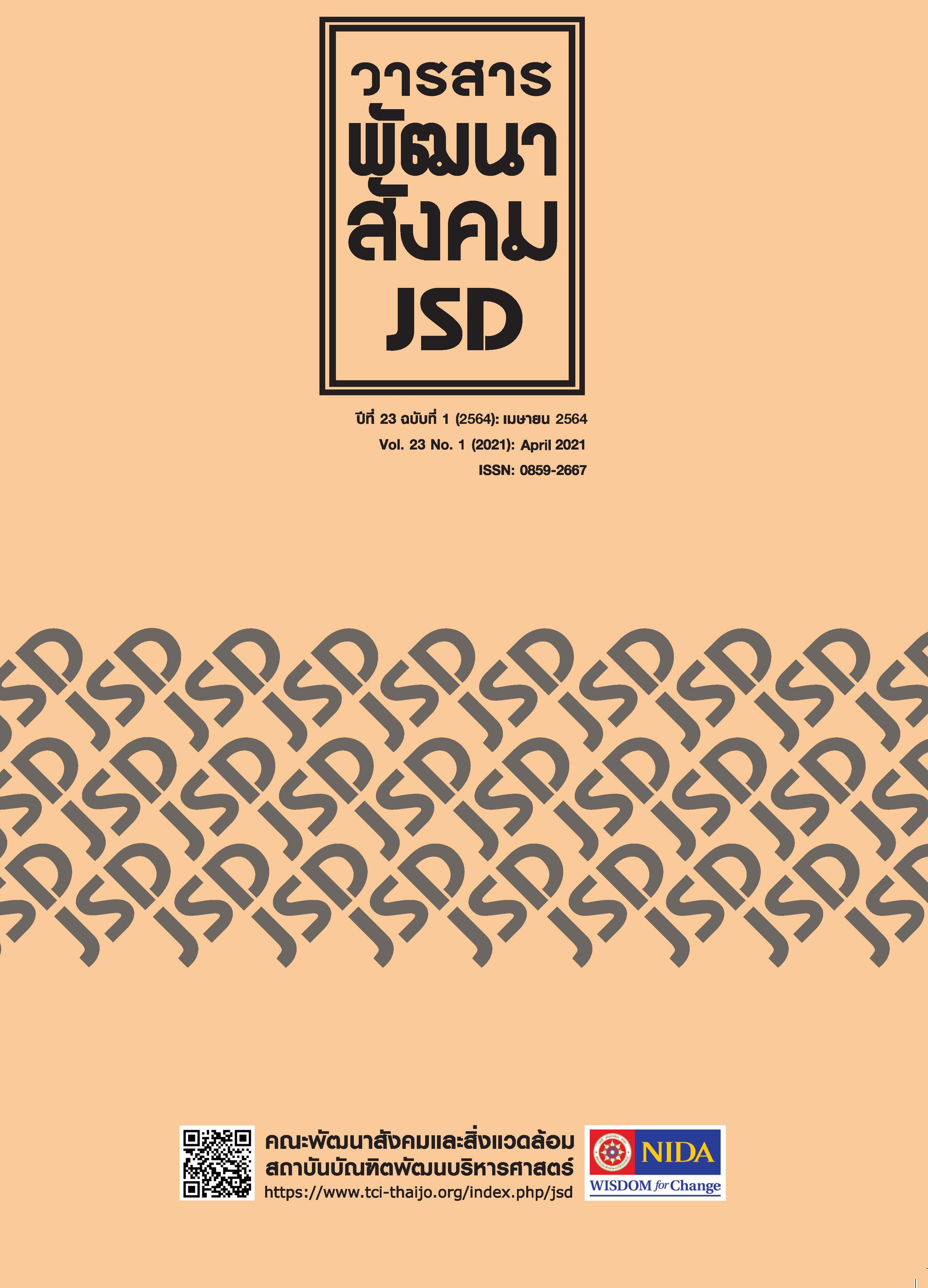A Study of Four Generation Citizens’ Political Cultures: A Case Study of Wangnoi District, Ayutthaya Province
Main Article Content
Abstract
A study has found that all four generation citizens have the subject-participant political culture, Gen. Y and Gen. Z incline to become the participant political culture. This difference derived from their political socializations that created their political beliefs, values and attitudes. Moreover, these political socializations have fashioned their different patterns of political behavior. In the meantime, the social and political cultural changes have affected the similarity and dissimilarity of each generation citizens’ political cultures.
Article Details

This work is licensed under a Creative Commons Attribution-NonCommercial-NoDerivatives 4.0 International License.
References
Almond, G. (1956). Comparative Politics Systems. The Journal of Politics, 18(3), 391-409.
Alsop, R. (2008). The trophy kids grown up: how millennial generation is shaking up the workplace. San Francisco: Jossey-Bass.
Asthana, A., & Thorpe, V. (2005). Whatever happened to the original generation X?. Retrieved September 23, 2019 from http://theguardian.com/uk/2005/jan/23/britishidentity.anushkaasthana.
Eawsriwong. N. (2007). Political Culture of Thailand Academic conference document. Bangkok: King Prajadhipok, s Institute.
Grail research a division of Integreon. (2014). Consumers of Tomorrow Insights and Observations about Generation Z. Retrieved September 23, 2019 from https://www.slideshare.net/johnyvo/consumers-of-tomorrowinsightsandobservationsaboutgenerationz-25226677
Kengkarnchang. K. (2015). Generation Y and the new challenges in human resource management. Journal of Social Sciences and Liberal Arts Kasetsart University, 2(1), 15-27.
Klainatorn. V. (1987). Sociology [in Thai]. Bangkok: Wattanapanit.
Mongkolsiri. S. (2005). Power gens branding [in Thai]. Bangkok: Pikanet Printing Center.
Nakata. T. (2003). Thai way of life, culture and politics of the new generation. Bangkok: Sahai Block Printing.
Office of Ayutthaya Election Commission. (2019). Unofficial score announcement (MP2019) Ayutthaya. Retrieved September 22, 2019 from: https://www.ect.go.th/ayutthaya/ewt_news.php?nid=565&filename=index.
Putnam, R.D. (1993). Making Democracy work: Civil Traditions in Modern Italy. New Jersey: Princeton University Press.
Rosenbaum. W.A. (1975). Political Culture. New York, Praeger Publishers.
Sally Kane. (2016). Baby boomers in the Workplace How Baby boomers Traits and Characteristics Affect the Workplace. Legal Careers. Retrieved October 25, 2016 from https://www.thebalance.com/baby-boomers-2164681.
Solomon, R.M. (2009). Consumer behavior: buying, having and being (9th ed.). Upper Saddle River, NJ: Pearson Prentice Hall.
Spire Research and consulting. (2010). Generation Y and Z Is marketing to the young all about technology?. Retrieved September 23, 2019 from: https://www.spireresearch.com/spire-journal/2010-2/q4/generation-y-and-z/.
Teeravekin. L. (1986). Scope and methods of studying political science [in Thai]. Bangkok: Sarmsart.
Teeravekin. L. (2010). Political changes among people. In Siamrat. Retrieved December 17, 2016 from http://www.dhiravegin.com/detail.php?item_id=000876.
Thamrongthanyawong. S. (2006). Thai Political [in Thai]. Bangkok: Sematham.
Ung-sakul. S. (2009). The needs of consumers in Generation Y have influenced the business model [in Thai]. Bangkok: Thammasart Printing.
Wongsurawat. K. (2014). What is Generation Y. In Matichon Online. Retrieved
October 25, 2016 from https://goo.gl/KouW13.
Yarrow, K. (2009). Gen Buy: How Tweens, Teens and Twenty-Something are Revolutionizing Retail. London: Wiley.
Yooprot. T. (2013). Effect of Work Values on Organizational Citizenship Behavior among the Generations. Journal of Business Administration, Thammasart University, 36(138), 40-62.


